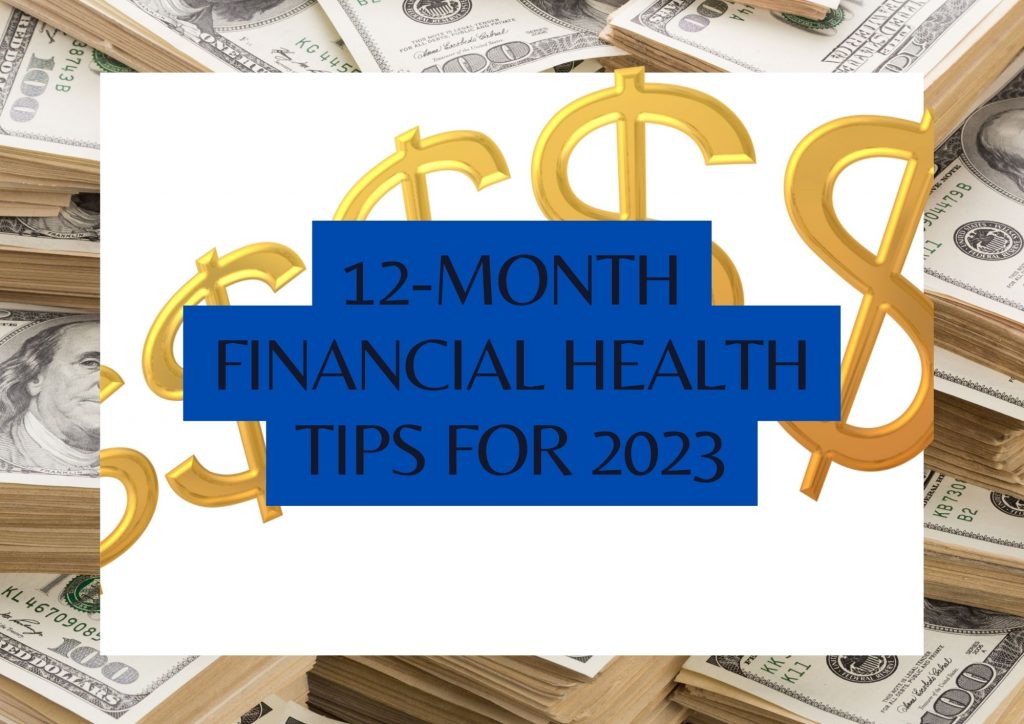Are you planning to take out a loan, get rid of credit card limits, save for a larger purchase or just start saving money? Take care of your financial health which may take up to 12 months.
To help you, we have prepared detailed instructions, thanks to which you will quickly and effectively improve your financial health.
Make an analysis
Make a careful analysis of all your previous commitments. Make 2 lists for each of your positive and negative experiences as a borrower. In order not to forget about individual obligations, as well as to conduct a full and thorough analysis, you should check your credit history yourself. This can be done online and completely free from your own laptop.
Catalog the monthly costs
For this purpose, it is worth preparing a table and list all costs related to maintaining the household, paying off other financial obligations, as well as fees related to pleasure and entertainment. There may be areas where you can make cuts that won’t drastically lower your quality of life. An example is a resignation from subscriptions to streaming services or limiting visits to restaurants.
Get rid of petty debts
Improving your financial health should start with getting rid of small debts. When you have a list of all your current obligations at hand, it is worth fulfilling those that you can pay off immediately. For example, a fine of $200 or $500 for unpaid loans. Of course, to get rid of larger debts, you will need more time, savings and a precise action plan. If you want to pay off your bills, you can use Payday loans to pay utilities bills, which take just 15 minutes to file.
Also, it should be remembered that all card limits or overdrafts in personal accounts are taken into account as a liability, even if they are not used. If we do not use the card or it is used occasionally, please return it to the bank. However, in a situation where we cannot imagine a wallet without a credit card, lowering its limit is a good solution.

Outline an action plan
Create a financial plan according to which you will be able to successfully pay off your largest obligations (for example, a home loan). At this stage you should:
- realistically assess your current savings;
- assess monthly income and expenses;
- designate additional money-saving opportunities;
- think about an additional source of income.
Avoid credits and loans from unreliable lenders
When planning a loan for a larger amount, it is worth taking a look at your financial situation. Track the number of liabilities and deadlines for their final repayment. It may be worth waiting with taking out a new loan until the current ones are repaid. Still, you can Get a second chance payday loan to pay some off your liabilities and fix your budget.
It should be remembered that the more loan applications we submit in short intervals, the lower our financial health will be. Therefore, when submitting the application, it is worth making a preliminary selection of lenders and submitting documents only to a few of them.
Pay off your liabilities on time
The punctuality of our liabilities has the greatest impact on our financial health. That is why it is so important to stick to the repayment schedule. However, if we do allow arrears to appear, remember to pay off those with the greatest delay in the first place.
Build a credit history
In a situation where we did not have any obligations or we have forgotten about it, thus allowing arrears in repayment, a good solution is to take out a small loan, e.g. purchase in installments and pay it back diligently or Pay off credit cards. Of course, this will not erase the negative entries, but it can certainly help to improve our financial health.
Take care of the amount of your income
One of the key elements affecting your financial health is your income. The situation becomes more complicated when your costs exceed your income or are so high that they do not allow you to generate an adequate financial surplus in your home budget. In such a situation, it is worth carefully verifying the sources of legal influence. It is possible that in addition to the employment contract, you undertake additional orders, rent a garage or receive regular bonuses. Each of these elements can make your financial health better. If you do not have other income, it is worth taking additional jobs, negotiating a raise with your employer, or reducing the monthly costs. However, the best effect will be to implement all of these elements at the same time.
Fix your bad credit
One of the elements of financial health is creditworthiness. If you pay your liabilities, you must make every effort to pay all installments on time. Delays in repayment affect your creditworthiness, which may result in a negative decision of the bank, which will not be convinced to lend money to a person who cannot cope with the repayment of previously incurred liabilities.
Apply for an overdraft on the account
Another way to increase your financial health is to submit an application for the debit option at your personal account. The overdraft linked to the account is an ideal opportunity to demonstrate consumer responsibility and being trustworthy.
Having an overdraft at the account, you can systematically generate a small debt and pay it back – or not debit at all, and thus build the opinion of a reliable customer who, although he has the opportunity, fights the temptation and does not get into debt on the overdraft.
Both ways of using the overdraft facility are equally good and will result in an improvement in our financial health.
Plan all your future expenses
Making a plan for future expenses, especially before the holidays or other important events, is a very effective way to improve your financial health. Always stick to this plan to avoid impulsive purchases and spend exactly as much as planned.
Write down your financial goals for the next year
The list should be clear and understandable so that you can stick to it throughout the year. Try to move from one goal to another as you complete them and reward yourself for every small victory.
